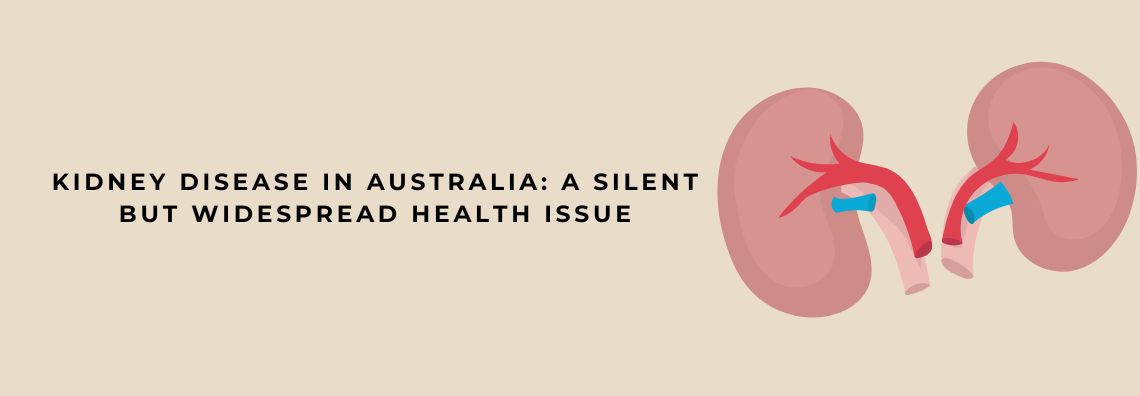
When the majority of individuals think of serious health ailments, they normally picture heart disease, cancer, or diabetes. Yet kidney disease is another illness that affects thousands of Australians. What makes it so difficult is that it normally does not show signs until harm has been inflicted. So how common is kidney disease in Australia? The facts might shock you.
How Australia Is Responding
Australia has been an active leader in informing more individuals about kidney disease. Early detection national programs have specifically focused on high-risk groups. Kidney screening has become a standard part of treatment offered at most health centers to the elderly or to diabetics.
Charity organizations are also doing their part. Kidney Health Australia, for instance, provides information, education, and online support for patients to become more knowledgeable about kidney health.
The Numbers Speak for Themselves
Kidney disease is much more common than individuals know. The Australian Bureau of Statistics estimates the number officially at approximately 1 percent of Australians with kidney disease. That’s about 246,000 individuals nationwide. That’s a small percentage sounding, but it’s only half the story. It is unknown to many individuals with kidney disease. And that is because it develops progressively and quietly over years. Years might pass before the symptoms appear. And by then, much damage would have been caused.Hidden and Undetected
Current health surveys indicate that more than 14 percent of adult Australians already have the preliminary symptoms of chronic kidney disease, but they are not ill. These symptoms are such as the presence of protein in the urine or decreased kidney function. That is to say, more than two million Australians might already have the disease but are not diagnosed. That is a significant number of people out there with an underlying condition. That’s why kidney disease specialists commonly refer to it as a “silent killer.” It’s lurking underneath the surface and is commonly overlooked during normal visits unless physicians are specifically looking for it.Who Is Most at Risk?
Kidney disease does not affect everybody equally. There are some groups of individuals who are more at risk of developing it than others. Older Australians are at higher risk, especially those over 75 years old. In fact, nearly 5 percent of them already have kidney disease. Aboriginal and Torres Strait Islander individuals are also at increased risk of developing kidney disease and at a younger age. This is attributed to issues such as access to medical care, increased prevalence of diabetes, and residing at a distance from medical care. Other causes include:- High blood pressure
- Diabetes
- Smoking
- Obesity
- Family history of kidney issues
- Heart disease
How Does It Start?
Kidney disease usually begins when kidneys have been damaged over a period of time. This can be due to other diseases such as diabetes or high blood pressure. Some people are born with kidney disease or develop it due to infection or certain medications. At first, the damage is not severe. But as it accumulates, the kidneys also lose function. If this occurs, waste and water start to accumulate in the body, which can cause even more diseases.Stages of Kidney Disease
Doctors apply five stages to classify the severity of kidney disease. In the initial stages, the kidneys function extremely well. But in the advanced stages, individuals might require dialysis or even a kidney transplant. The frightening aspect is that individuals in the initial stages can be feeling great and might not even realize that something is unusual. That is the reason why catching it early is so crucial. If you look after it correctly, you may be able to slow down the illness or halt its progression entirely.Warning Signs
Although kidney disease is often silent at the start, there are certain things to watch out for, especially later on. These are:- Always feeling exhausted
- Swollen ankles or legs
- Sleeping poorly
- Need to pee more or less
- Foamy or blood-stained pee
- Cramping muscles
- Difficulty keeping focused
Why Early Testing Is Useful
What You Can Do
You might not have symptoms, but it is most certainly worth doing everything you can to look after your kidneys. To stay healthy:- Drink a normal amount of water
- Eat a balanced diet
- Exercise regularly
- Don’t smoke
- Drink less alcohol
- Manage blood pressure
- Manage diabetes if you have it
- Get check-ups often